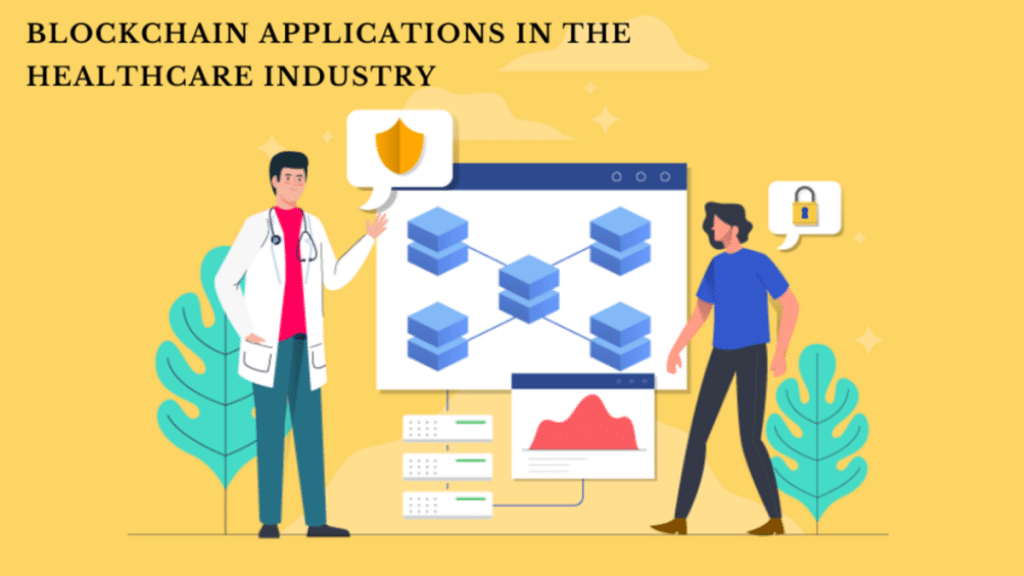Blockchain technology is a revolutionary tool that can potentially transform industries. At its core, Blockchain is a decentralised, distributed ledger that helps secure and store the data securely. You can apply for a Blockchain Course online and acquire critical skills in Blockchain Technology. In this article, you will explore the need for Blockchain in Healthcare.
Blockchain is a distributed ledger technology that helps store data securely and transparently. It records and verifies transactions that take place on the Blockchain network. Its key features are decentralisation, immutability, and transparency, which make it particularly well-suited for addressing some of the challenges faced by the Healthcare industry.
Table of Contents
- Challenges in the Healthcare Industry
- How Blockchain Technology Can Help
- Current Blockchain Applications in Healthcare
- Conclusion
Challenges in the Healthcare Industry
The Healthcare industry faces various challenges impacting the industry and patients. Two of the most pressing challenges are data security and interoperability.
Data security is a critical challenge in Healthcare. With the growing amount of sensitive health data being collected and stored in electronic health records (EHRs), there is a real risk of this data being stolen or compromised. This can significantly harm patients, including financial losses, identity theft, and even medical errors.
How Blockchain Technology Can Help
Traditional Healthcare systems rely on centralised databases vulnerable to hacks and breaches. Blockchain technology, on the other hand, uses a decentralised network of nodes that work together to verify and record transactions. Also, data stored in Blockchain is tamper-proof. This makes it more secure than traditional systems.
Secondly, Blockchain can help address interoperability challenges in Healthcare. With its decentralised architecture, Blockchain can enable different Healthcare systems to communicate and share data seamlessly and securely. This can improve the accuracy and completeness of patient data, reducing the risk of medical errors and improving patient outcomes.
Finally, Blockchain can support patient-centred care in Healthcare. With its decentralised and transparent nature, Blockchain can empower patients to have greater control over their health data. Patients can use Blockchain-based systems to store and manage their health data securely and to share it with Healthcare providers as needed.
Current Blockchain Applications in Healthcare
Blockchain technology is increasingly used in various areas of Healthcare to address some of the industry’s most pressing challenges. Here are some current use cases for Blockchain technology in Healthcare:
Supply chain management:
Blockchain technology can track the movement of pharmaceuticals and medical devices throughout the supply chain. Counterfeit products can be prevented from entering the market, and ensure that drugs and medical devices are safe and effective. For example, the pharmaceutical company Pfizer is using Blockchain to track the distribution of its products and ensure that they are not tampered with.
Electronic health records (EHRs):
Blockchain technology can securely store and share patient health data in electronic health records (EHRs). This can improve the accuracy and completeness of patient data, reduce the risk of medical errors, and enhance patient privacy and security. For example, the startup MedRec is developing a Blockchain-based EHR system that gives patients greater control over their health data.
Clinical trials:
Blockchain technology can improve the efficiency and transparency of clinical trials. Blockchain helps to securely store and share patient data, because of which researchers can more easily recruit patients for trials, track the progress of the trials, and ensure that the data is accurate and complete. For example, the pharmaceutical company Boehringer Ingelheim uses Blockchain to streamline the clinical trial process and improve data sharing among researchers.
Medical research:
Blockchain technology can securely share medical research data among researchers and institutions. This can improve collaboration and accelerate the development of new treatments and therapies. For example, the startup Nebula Genomics is using Blockchain to create a decentralised marketplace for genomic data, allowing individuals to securely share their own genomic data with researchers in exchange for cryptocurrency.
Conclusion
Blockchain technology provides several benefits. By providing a secure and transparent way of storing and sharing data, Blockchain can improve the accuracy and completeness of patient data, reduce the risk of medical errors, and enhance patient privacy and security. Additionally, Blockchain can improve collaboration and data sharing among researchers, accelerating the development of new treatments and therapies.

